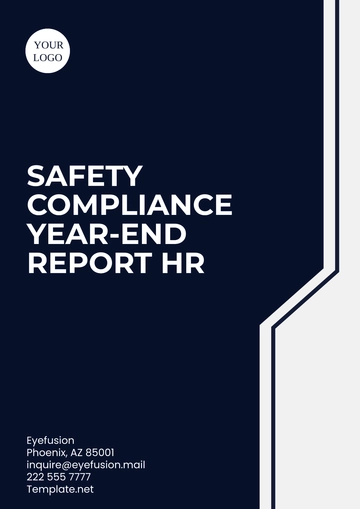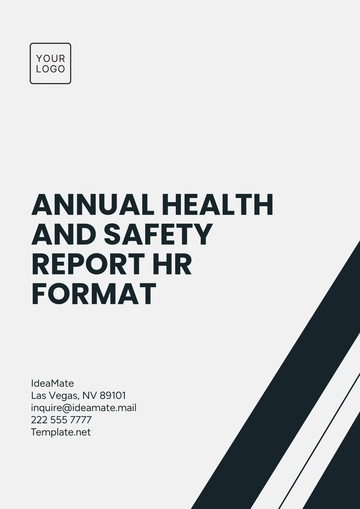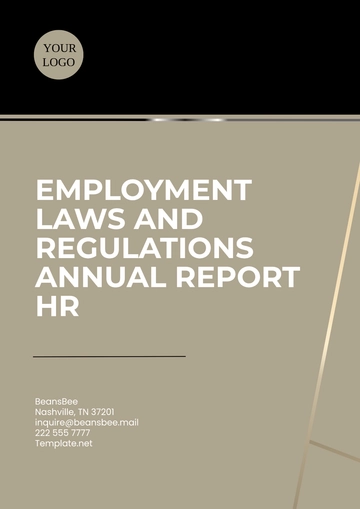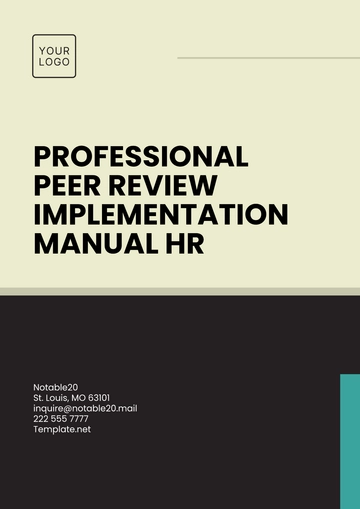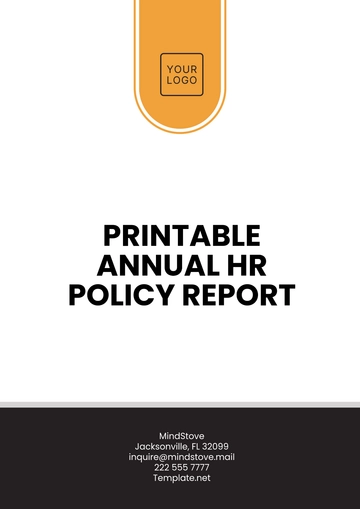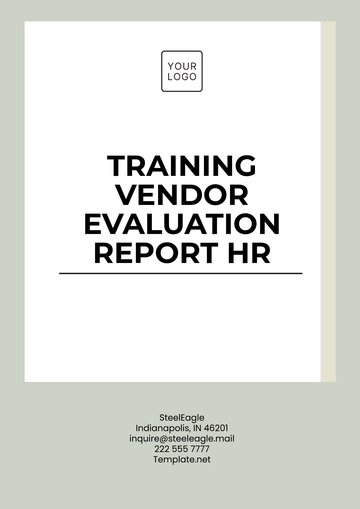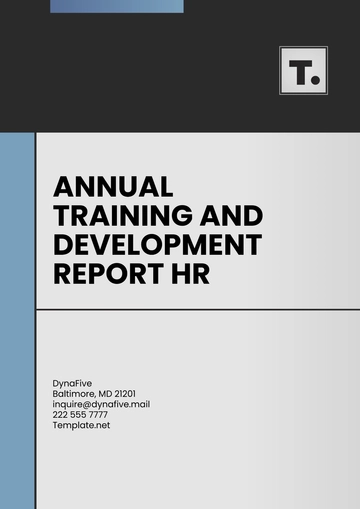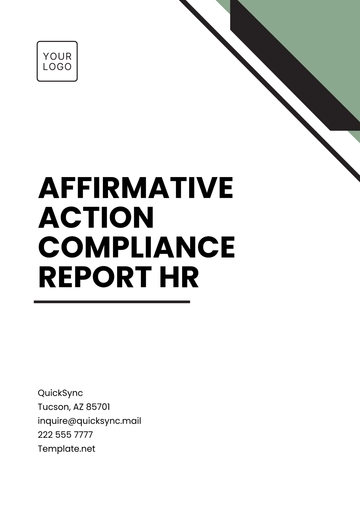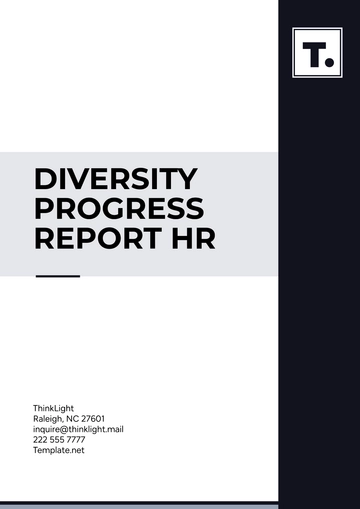Free Anti-harassment Training Report HR
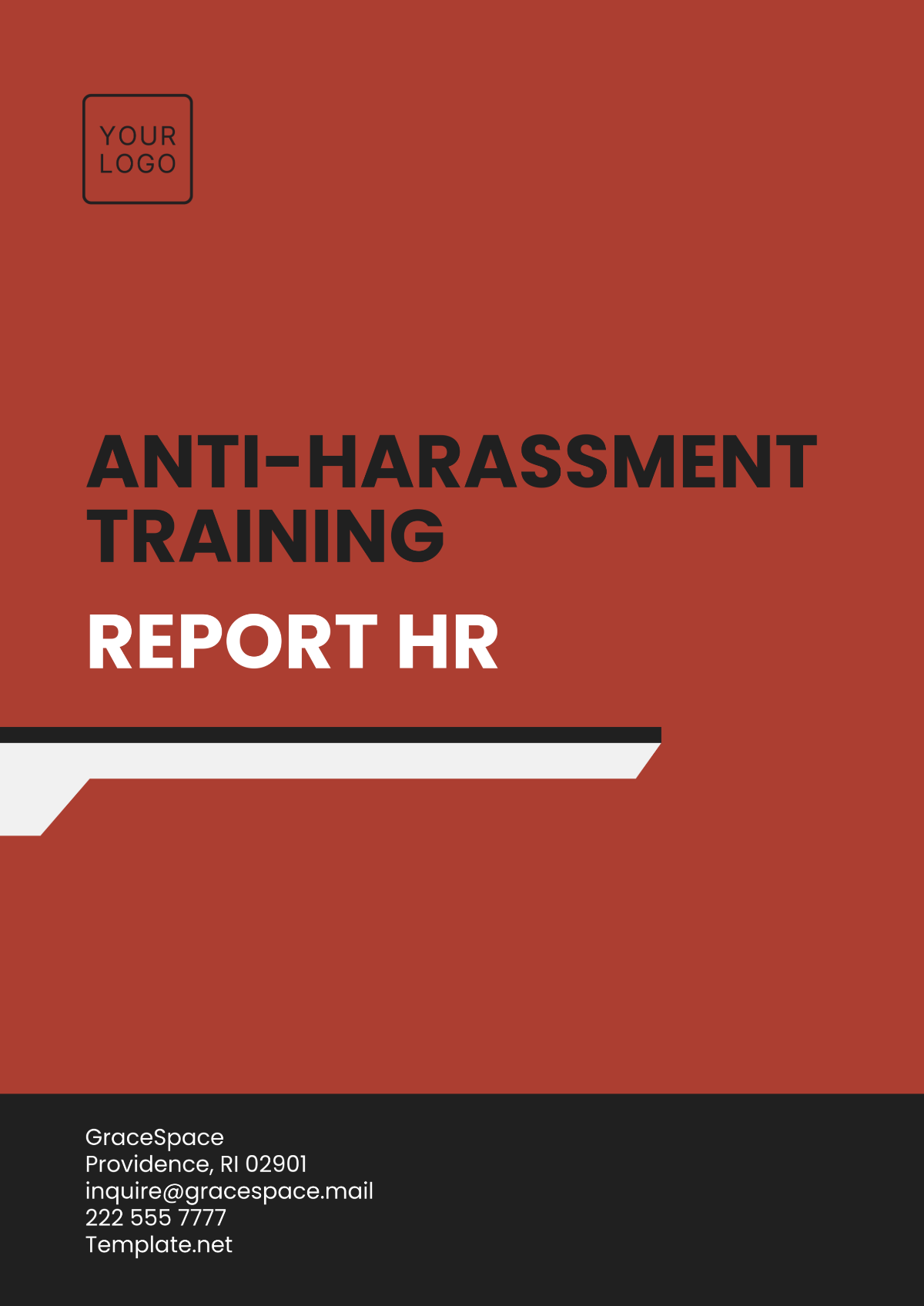
Prepared by: [Your Name]
Company: [Your Company Name]
Date: [Insert Date]
Introduction
This report aims to provide a comprehensive analysis of the recent anti-harassment training conducted by the Human Resources (HR) department. This training is part of the organization's commitment to creating a safe and inclusive work environment. The report details the objectives, methodologies, participant feedback, and the effectiveness of the training program.
Objectives of Anti-Harassment Training
The primary objectives of the anti-harassment training are as follows:
To educate employees about what constitutes harassment and discrimination in the workplace.
To inform employees about the company's policies and procedures regarding harassment and discrimination.
To equip employees with tools and strategies to prevent harassment and promote a respectful work environment.
To ensure compliance with legal and regulatory requirements concerning workplace harassment.
Training Methodologies
The training was designed using a combination of instructional methods to cater to different learning styles. The methods employed include:
Interactive Workshops
Workshops were conducted to encourage active participation. Discussions and role-playing scenarios helped employees understand the impact of their actions and those of others in the workplace.
E-Learning Modules
The e-learning modules offered flexibility for employees to complete the training at their own pace. These modules included interactive content, quizzes, and video scenarios to engage participants effectively.
Guest Speakers and Experts
Sessions were facilitated by industry experts and legal advisors who provided insights into the latest trends and cases related to workplace harassment.
Participant Feedback
Participant feedback was collected through surveys administered at the end of the training sessions. The feedback is summarized below:
Question | Agree (%) | Neutral (%) | Disagree (%) |
|---|---|---|---|
The training was informative and useful. | 85 | 10 | 5 |
The training met its stated objectives. | 80 | 15 | 5 |
The format and delivery were engaging. | 75 | 20 | 5 |
I feel more confident in recognizing and addressing harassment. | 82 | 12 | 6 |
Training Effectiveness
The effectiveness of the anti-harassment training was evaluated based on several criteria. The key findings are as follows:
Knowledge Retention
Post-training assessments indicated a significant increase in the understanding of what constitutes harassment. Employees demonstrated improved knowledge of the processes for reporting and addressing harassment cases.
Behavioral Change
Observations and follow-up surveys suggest a positive shift in workplace behavior. There has been an increase in courteous interactions and a decline in reported harassment incidents.
Policy Compliance
Since the implementation of the training, compliance with HR policies regarding harassment reporting and resolution procedures has improved. Employees are more proactive in utilizing the resources available to them.
Conclusion
The anti-harassment training initiative has been largely successful in meeting its objectives. The combination of interactive workshops, e-learning modules, and expert sessions catered effectively to the diverse workforce. Moving forward, periodic refresher courses and continuous feedback will be essential to sustain the positive cultural shift within the organization.
Recommendations
Continue regular training sessions with updated content that reflects current legal standards and societal expectations.
Implement ongoing assessments to measure long-term retention and behavioral changes among employees.
Establish a continuous feedback loop with employees to refine and enhance training methodologies.
Encourage a supportive environment where employees feel comfortable reporting harassment without fear of retaliation.
- 100% Customizable, free editor
- Access 1 Million+ Templates, photo’s & graphics
- Download or share as a template
- Click and replace photos, graphics, text, backgrounds
- Resize, crop, AI write & more
- Access advanced editor
Foster a safe workplace with our Anti-harassment Training Report HR Template from Template.net! This customizable report ensures clear documentation of anti-harassment training efforts. Utilize the AI Editor Tool for modifications, ensuring the report aligns with your specific safety protocols. Embrace our editable template for efficient reporting! Get your copy immediately!
You may also like
- Sales Report
- Daily Report
- Project Report
- Business Report
- Weekly Report
- Incident Report
- Annual Report
- Report Layout
- Report Design
- Progress Report
- Marketing Report
- Company Report
- Monthly Report
- Audit Report
- Status Report
- School Report
- Reports Hr
- Management Report
- Project Status Report
- Handover Report
- Health And Safety Report
- Restaurant Report
- Construction Report
- Research Report
- Evaluation Report
- Investigation Report
- Employee Report
- Advertising Report
- Weekly Status Report
- Project Management Report
- Finance Report
- Service Report
- Technical Report
- Meeting Report
- Quarterly Report
- Inspection Report
- Medical Report
- Test Report
- Summary Report
- Inventory Report
- Valuation Report
- Operations Report
- Payroll Report
- Training Report
- Job Report
- Case Report
- Performance Report
- Board Report
- Internal Audit Report
- Student Report
- Monthly Management Report
- Small Business Report
- Accident Report
- Call Center Report
- Activity Report
- IT and Software Report
- Internship Report
- Visit Report
- Product Report
- Book Report
- Property Report
- Recruitment Report
- University Report
- Event Report
- SEO Report
- Conference Report
- Narrative Report
- Nursing Home Report
- Preschool Report
- Call Report
- Customer Report
- Employee Incident Report
- Accomplishment Report
- Social Media Report
- Work From Home Report
- Security Report
- Damage Report
- Quality Report
- Internal Report
- Nurse Report
- Real Estate Report
- Hotel Report
- Equipment Report
- Credit Report
- Field Report
- Non Profit Report
- Maintenance Report
- News Report
- Survey Report
- Executive Report
- Law Firm Report
- Advertising Agency Report
- Interior Design Report
- Travel Agency Report
- Stock Report
- Salon Report
- Bug Report
- Workplace Report
- Action Report
- Investor Report
- Cleaning Services Report
- Consulting Report
- Freelancer Report
- Site Visit Report
- Trip Report
- Classroom Observation Report
- Vehicle Report
- Final Report
- Software Report







